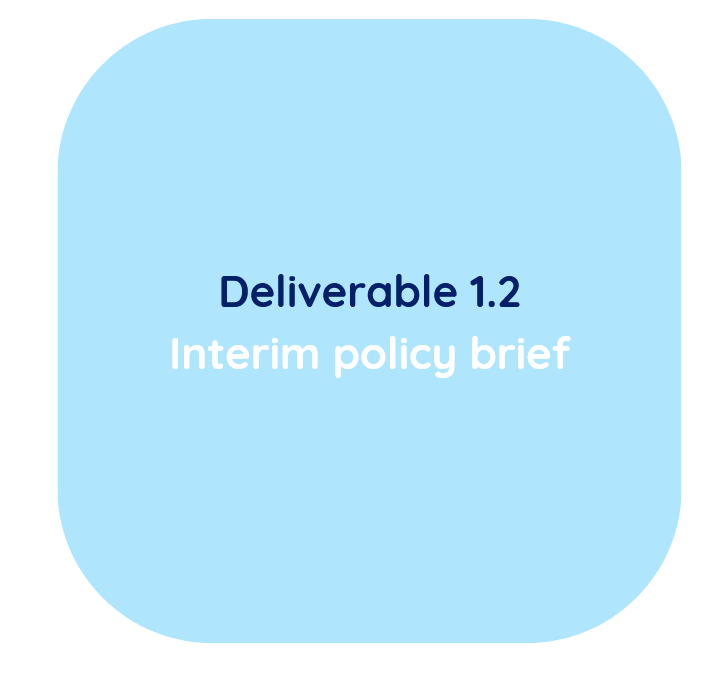Deliverables
Deliverable 4.3 - Community of practice
“A Community of Practice (CoP) is a meeting place where professionals share analyses, inform and advise each other and develop new practices […]. A CoP goes further than communities of interest and informal networks because it has a collective task.” (Andringa and Reyn, 2014)
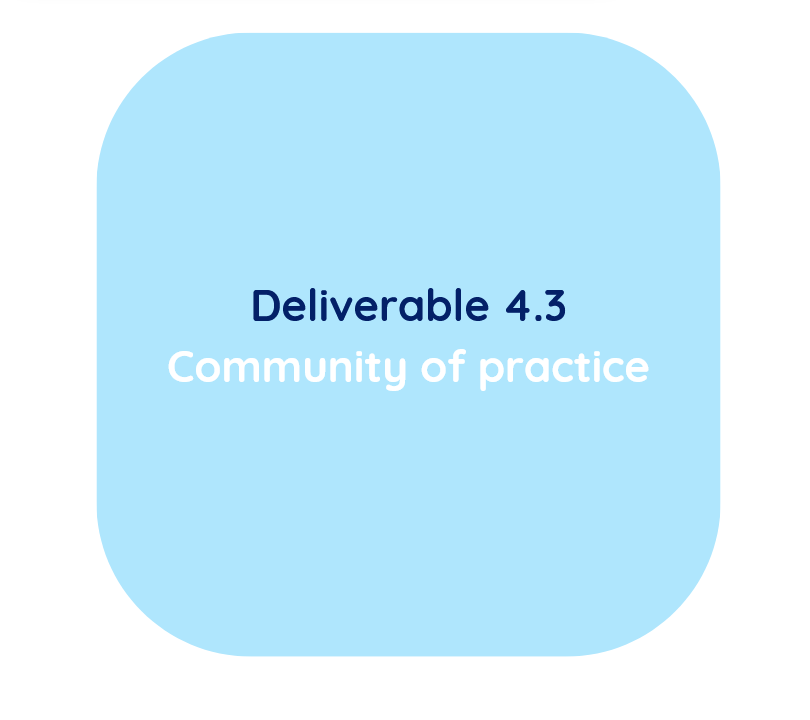
Deliverable 4.2 - Capacity building
This Trainers’ Manual aims to provide a guide for trainers to perform a more effective REGINA-MSP capacity building process for local and regional staff. The manual is structured in 3 key Training Modules. Module 1 provides an in-depth understanding of the basic concepts and principles underlying MSP and the key challenges affecting policy-makers at regional and local levels. Module 2 explores how to implement a participatory planning process, and the role of relevant stakeholders. This module presents key tools, techniques, and data used across scales. Module 3 focuses on climate impacts on marine ecosystems and the integration of climate considerations in MSP. It discusses relevant theoretical regimes about the ecosystem approach in MSP and practical tools like Strategic Environmental Assessment, Cumulative Impact Assessment and Scenarios buildings.
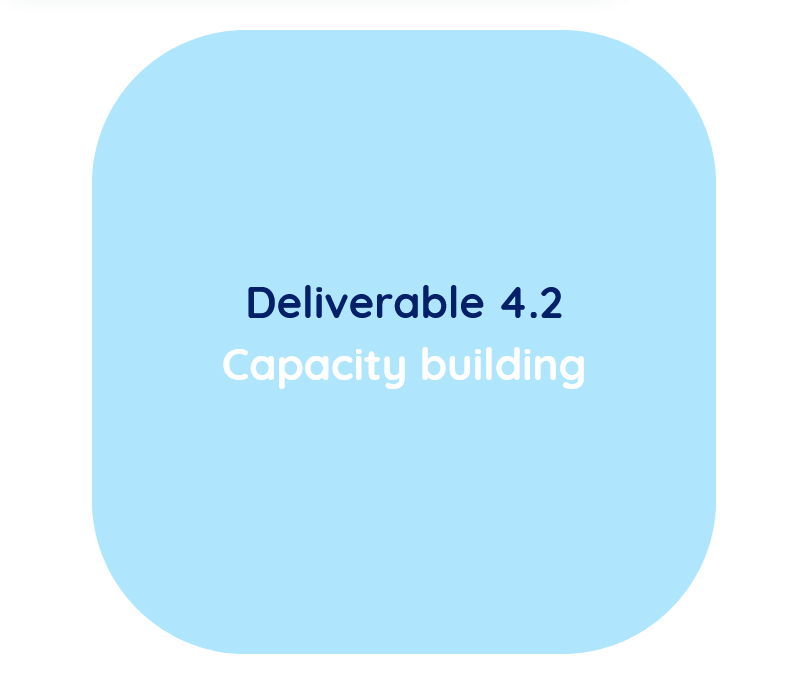
Deliverable 4.1 - Ocean literacy regional plan
This task aims to create opportunities for Regions to discuss on the necessities of their territories in terms of MSP-related ocean literacy and identify suitable solutions, processes and tools to meet their needs. Based on a review of the initiatives available at regional levels, particularly in the case study Regions under WP3 and on exchanges between Regions (a specific workshop will be organised), the task will develop what a Plan could be for an MSP-oriented Ocean Literacy at regional level. This exemplary plan may include (for example, non-exhaustive list): educational packages targeting specific categories (e.g. fishing and aquaculture associations, tourism and recreational operator associations, local communities, high school students of maritime disciplines) to be for example used in workshops and public meetings; itineraries to be offered in marine / maritime museums, public buildings and during events; clips to be disseminated via social networks, etc. Outcomes from the task will be used to make proposals in the framework of initiatives in place (e.g. EU4Oceans, UNESCO Ocean Literacy for All, The Ocean Decade) to include Ocean Literacy themes of interest for Regions.
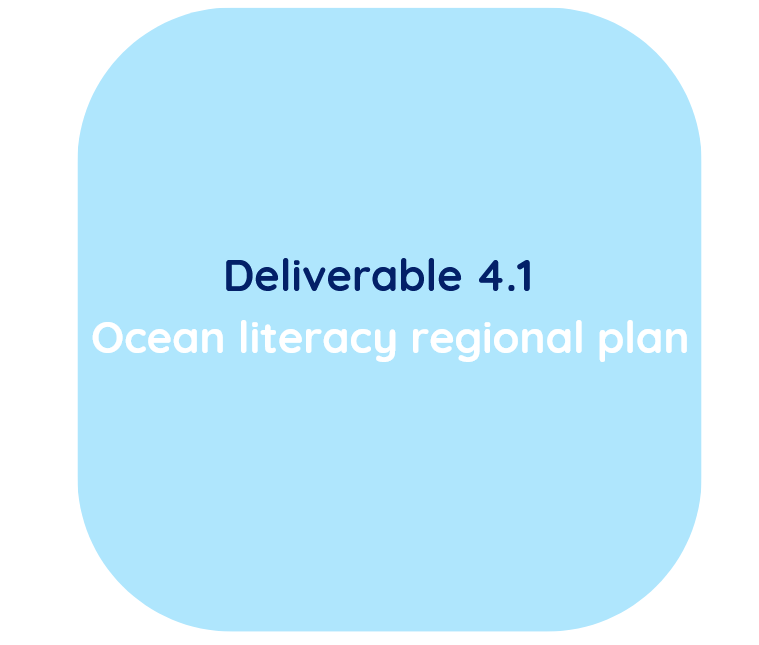
Deliverable 3.4 - Regional actions for MSP
This deliverable is included in task 3.4 of WP3 and focuses on identifying new tailored actions to enhance the contribution of regional and local levels to Maritime Spatial Planning initiatives. Through a comprehensive analysis of planning instruments, knowledge base and stakeholder engagement across eight case study regions, this task integrates previous findings to address emerging opportunities, challenges, gaps, and needs. The objective is to develop tailored actions that optimize MSP processes and align them with regional, national, and European policies. Finally, by prioritising actions that address multiple needs simultaneously, the last section provides avenues to enhance the feasibility and efficiency of MSP implementation, through resource optimisation and improved objective integration.
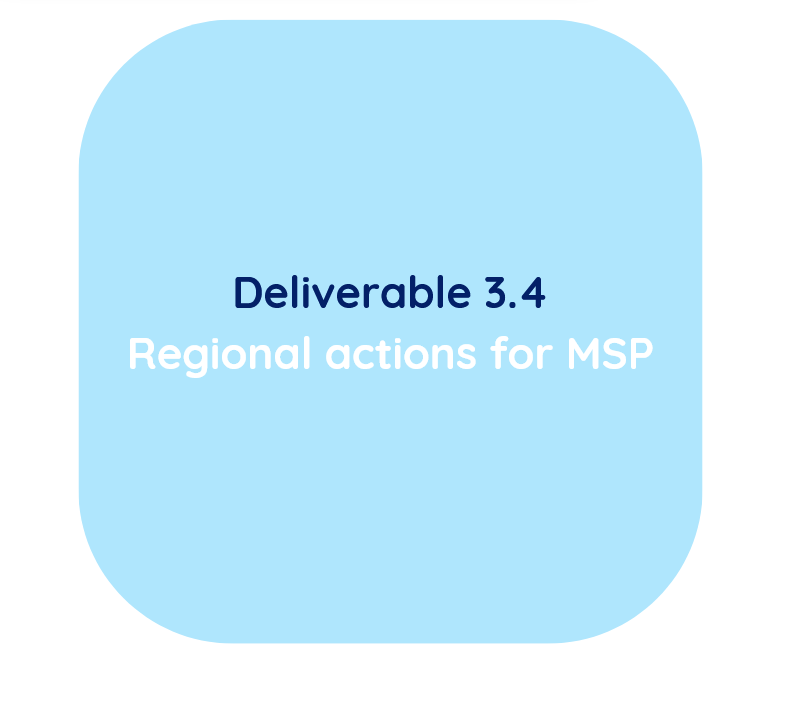
Deliverable 3.3 - Regional specificities
This deliverable is framed into task 3.3 of WP3: Deepening analysis in case study Regions from 2 sea basins, Atlantic and Mediterranean. This task aims at identifying regional specificities that may influence the participation of Regions in the national MSP processes and identifying/discussing actions needed at regional and local levels to foster MSP implementation that adequately addresses regional needs. This report provides a thorough analysis of the workshops held in the eight REGINA-MSP case study regions (Murcia and Galicia in Spain, Sardinia in Italy, Provence-Alpes-Côte d’Azur and Pays de la Loire in France, Crete and Central Macedonia in Greece, Mayo County in Ireland). Numerous commonalities have been found among case studies and the main differences have been highlighted.
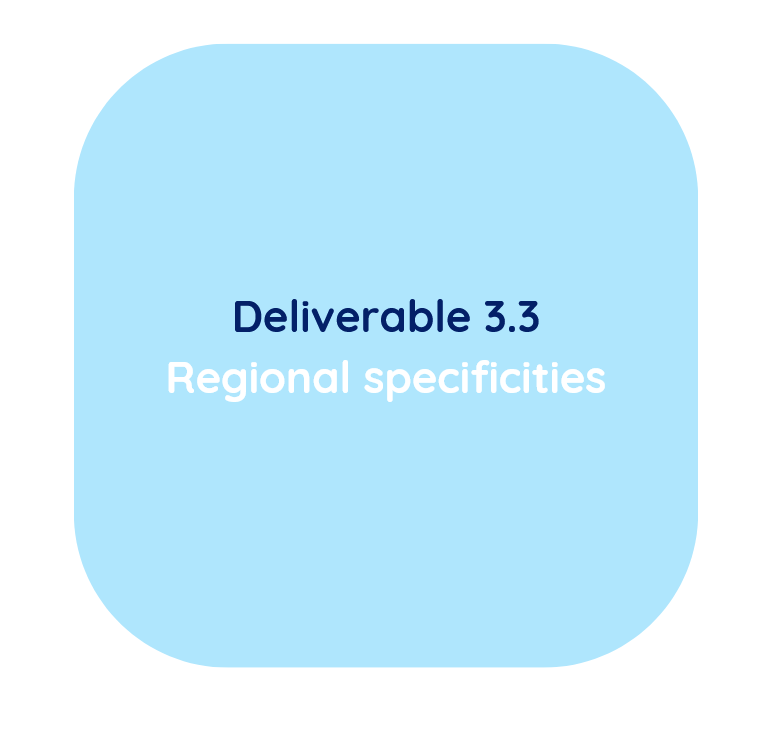
Deliverable 3.2 - Data report
The REGINA-MSP project aims to greater integrate regional and sub-regional needs, perspectives and stakeholders into Maritime Spatial Planning (MSP). The development and access to locally-relevant and up to date data is one important way to better engage regional actors in the elaboration and implementation of MSP action. Through its task 3.2 dedicated to data, the REGINA-MSP project engaged European case study regions to address their diverse data needs, tailored to their unique characteristics, through collaborative efforts. Building on the insights from previous European projects as well as workshops and online meetings conducted as part of the REGINA-MSP project with regional representatives, this reports explores the complex data landscape to address regional needs for MSP initiatives. This report also describes the various actions undertaken as part of this task 3.2 and their outcomes, such as the development of a platform for stakeholders to share insights, explore strategies, and identify opportunities for enhancing data accessibility and use in MSP. Presentations and discussions (including an interactive activity on exploring regional conflicts of use) also highlighted initiatives and tools supporting MSP processes, which are further illustrated in this report.
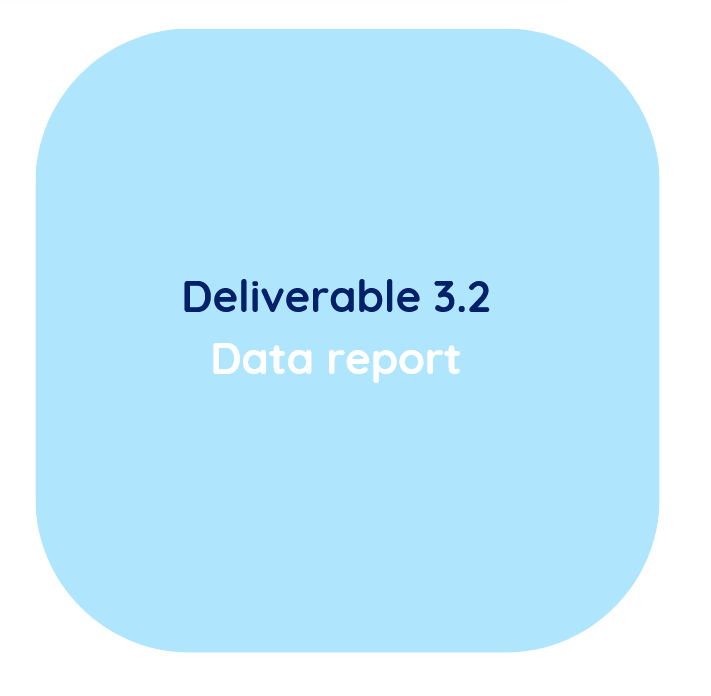
Deliverable 3.1 - Regional analysis report
The inventory and cross-analysis of 140 marine and coastal strategies at the regional and local levels in the REGINA-MSP case studies areas has been conducted. The level of integration of these plans and strategies into MSP varies greatly depending on the country and the role of regions into the MSP process. A lack of operational integration of regional and local plans and strategies into MSP was observed.
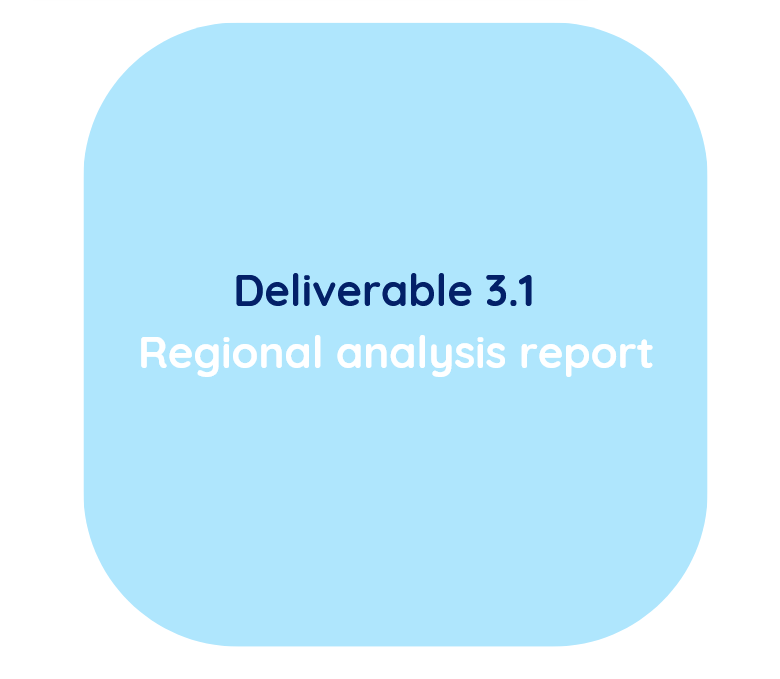
Deliverable 2.1 - Initial survey
The REGINA-MSP project released a report analysis following a survey addressing regional and national implementation of Maritime Spatial Planning in European countries. The report was coordinated by the University College Cork's MaREI Centre (UCC-MaREI) and the conference of Peripheral Maritime Regions of Europe (CPMR) and supported by THETIS as consultants, in the framework of the Work Package 2. The report delivers a state of play of the MSP implementation based on 36 collected replies from 12 countries, including local and regional authorities, national and federal authorities and agencies, NGOS, Universities, and fishery associations.
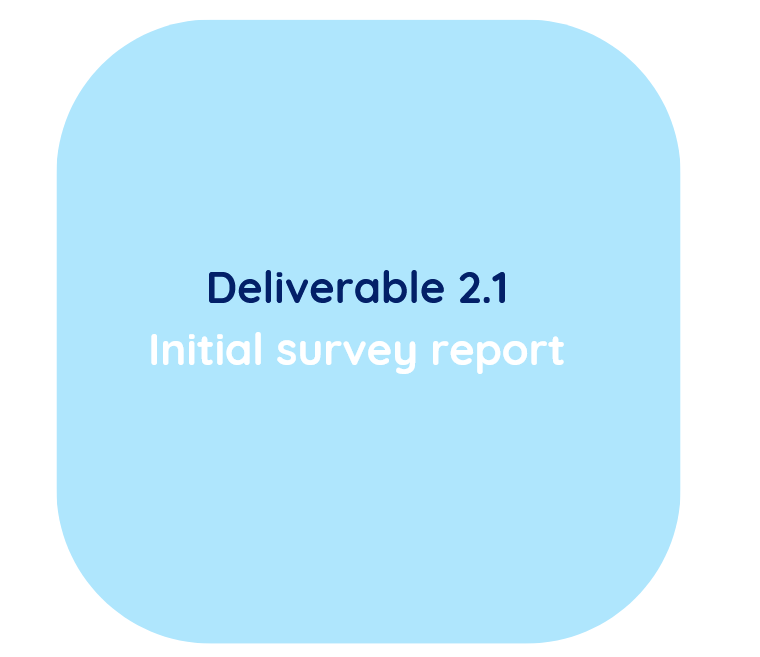
Deliverable 1.3 - Project fact sheet
The project aims at improving the participation of the Regions, local authorities and stakeholders in the development and implementation of national Maritime Spatial Planning (MSP). Building on a general analysis and discussion at European level and in-depth study of 8 regional case studies in 5 countries (Ireland, France, Spain, Italy and Greece), it is expected that this project will enhance uptake at regional level to further promote MSP, improving its contribution to the European Green Deal and interaction with the European Cohesion Policy. Recommendations will benefit MSP processes and the coordination of public policies at European, national and regional levels.
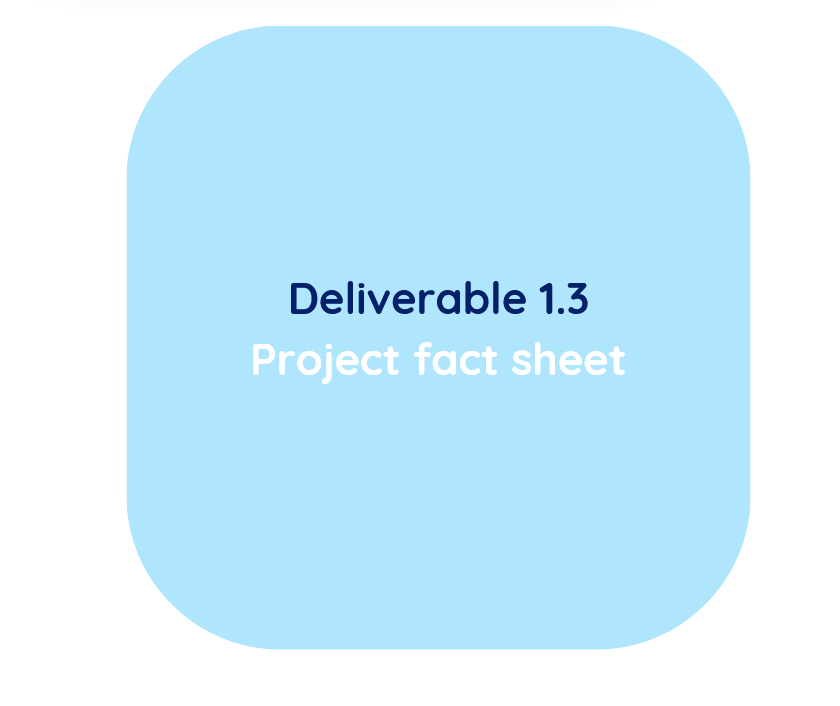
Deliverable 1.2 - Interim policy brief
Coastal Regions are key players for maritime and coastal policies, but how do they participate in and benefit from national Maritime Spatial Planning?
